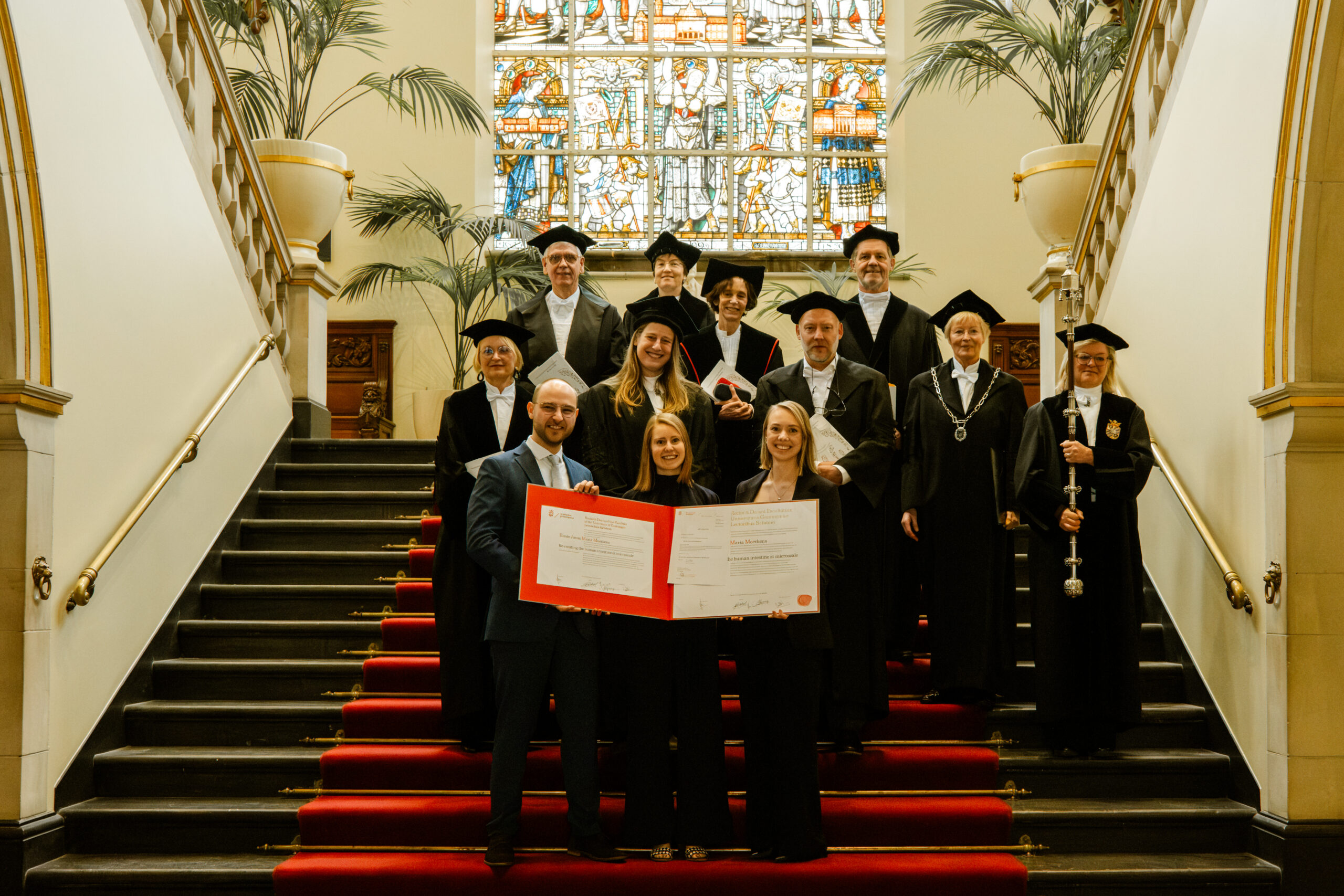On January 22th, Renée Moerkens successfully defended her PhD thesis titled “Re-creating the human intestine at microscale” at the University of Groningen, earning a cum laude distinction.
Her research describes the development of an intestine-on-chip: a miniature version of the human intestine, only a few centimeters in length. This intestine-on-chip could provide an alternative for traditional research models, such as cell lines cultured in plastic dishes and animals, which fail to fully replicate human intestinal biology and disease.
To develop the intestine-on-chip system, intestinal cells were generated from urine, enabling personalized mini-intestines to be produced from non-invasive sources. By activating specific genes and signaling pathways, these urine-derived cells were transformed into induced pluripotent stem cells and then into intestinal cells. Within the intestine-on-chip these cells were exposed to a continuous fluid flow, which replicates the human intestinal environment and drives the cells to form finger-like structures resembling intestinal villi. The intestine-on-chip system mimics the intestinal epithelial barrier and subepithelial tissues (including myofibroblasts and neurons), and was optimized to reproduce a human-like cell composition and structure. Additionally, the system’s dynamic environment was shown to promote more mature and functional intestinal phenotypes compared to conventional static models.
In the future, these human-based intestinal models could be used to decipher processes involved in complex intestinal diseases, such as celiac disease and inflammatory bowel disease, facilitate drug testing, investigate the effects of gut bacteria and analyze why certain individuals respond differently to nutrients or drugs.
The research was performed under the supervision of Prof. Sebo Withoff, Prof. Iris Jonkers and Prof. Cisca Wijmenga and in close collaboration with her colleague Joram Mooiweer at the department of Genetics at the University Medical Center Groningen (UMCG). In addition, she was part of the Netherlands Organ-on-Chip Initiative (NOCI): an initiative that fosters collaboration between bio-medical engineers and biological researchers from six prominent universities in the Netherlands (LUMC, TU Delft, UT, UMC Utrecht Hubrecht, UMCG and Erasmus MC) with the aim to pioneer and advance human organ-on-chip systems.

